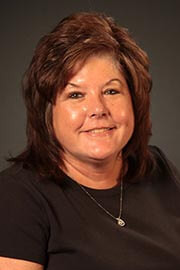Field Education
Field Education remains a cornerstone of the Master of Divinity curriculum at Louisville Seminary. We believe that deep learning occurs through readings and classroom experiences, but also through the very practice of ministry. By doing, reflecting on that doing with peers and mentors, then going back to do again, we learn more about God, ourselves and our communities.
Welcome to Field Education at Louisville Seminary
Interim Field Education Director Rev. Dr. Angela Johnson and Administrative Assistant Laura March are eager to guide you through the joys, challenges and paperwork of Field Education.
If you have any questions, or would like to meet us, come by Schlegel Hall, offices 103 and 104, or contact us by email or phone.
Louisville Seminary supports a variety of opportunities to serve in ministry. (If you are interested in becoming a Field Education Site, please view the Become A Field Ed Site.) Students can work in unique agency placements such as hospitals, non-profits, community organizing, Presbytery offices, denominational offices, campus ministries and more. Congregational placements in churches spanning many denominations are reserved for students who have completed several introductory courses. Other more intensive full-time experiences, including Clinical Pastoral Education (CPE) in a hospital, summer-time intensives and year-long internships are also available.
All incoming MDiv students must register for the 1 credit hour asynchronous course ‘Intro to Mentored Reflection in Ministry’ FE 1001. During the course, students are to complete the Biographical Sketch 2024-2025, schedule a meeting with the Director of Field Education and complete the online course modules. Each module contains information necessary to begin your Field Education journey. Appointments are to be scheduled through Laura March beginning October 1st.
We look forward to meeting with you!

Rev. Dr. Angela Johnson, DMin.
Interim Director of Field Education
502-894-2294
ajohnson@lpts.edu

Laura March
Administrative Secretary
(502) 992-9382
lmarch@lpts.edu
Field Education Basics
Program Goals
Field Education is an integral part of preparation for ministry at Louisville Seminary. Through supervised experiences in congregations and agencies, the students have an opportunity to:
- Develop skills in the practice of ministry
- Clarify and focus their sense of call
- Discern specific gifts for ministry
- Integrate theology with experience
- Develop ministerial identity and character
- Build a network of mentors in ministry who can also serve as references for those seeking a new or first call
Requirements
Students at Louisville Seminary experience a wide variety of opportunities for field education. Louisville Seminary requires 800 hours of field education for the MDiv degree and 400 hours for the dual MDiv/MAMFT degree. 200 hours must be in a congregational placement. The remaining hours can be in an agency, congregation or as Clinical Pastoral Education (CPE)*. See "Varieties of Field Experience" for more information on these and other options.
* When CPE is required for ordination, CPE can fulfill 400 of the required 800 hours of field education.
Field Education during the academic year is a 12 to 15-week placement per Semester term, 10-15 hours per week. Summer placements are a 12-week term, 12-40 hours per week. Students may apply to a different site each term. Full-time placements for 10 weeks in the Summer equals 400 hours of field education.
Stipends and Payment
A stipend is provided for approved agency and congregational field education placements. If the congregation or agency is unable to pay the full stipend, the seminary may provide a stipend subsidy. However, if the student continues for a second year at the same site, the seminary will not subsidize the second year.
No stipends are paid to students taking CPE. However, the seminary will pay a supervision fee (currently $850) to ACPE approved hospitals in the Louisville Cluster for the first unit of CPE. If a student chooses to take a unit of CPE outside the Louisville Cluster of hospitals, the seminary will pay up to the Louisville Cluster amount of the unit fee. All payments are made directly to the CPE site. Contact the Field Education Office for additional information.
Varieties of Field Education Experiences
Congregational Placements
Field Education in a congregational setting is provided for the student in a congregation where there is a pastor trained in supervision and willing to partner with the seminary. This is a part-time placement (7-25 hours/week) and is required for the MDiv degree.
The congregational placement provides experience in a broad range of pastoral work including worship leadership, preaching, pastoral care, mission, Christian education, youth and administration. Because such placements require biblical, theological and pastoral understandings, these placements are not open to students who have not completed such courses.
Students who already serve as full or part-time pastors in a congregation are also required to engage in field education with supervision. Ordinarily this is done after the first year of seminary. Their current place of ministry may be used as the site upon completion of all field education paperwork. The student will be required to work with an individual supervisor provided by the denomination and approved by the Director of Field Education.
After successfully completing a year of supervised ministry, those students who serve as full-time or part-time Pastors may apply for field education credits for previous ministry work which is to be approved by the Director of Field Education.
Internships
At Louisville Seminary, most Field Education experiences, that are part-time are called “placements.” Full-time experiences (40 hours/week) are called “internships.” For students who wish to take a year’s full-time internship, the Office of Field Education provides information on congregations and agencies qualified to work with a student. The internship is open to students who have satisfactorily completed 3 semesters of academic work and 200 hours of field education experience.
Agency Placements
Students work in various agencies such as non-profits, community organizing, Presbytery offices, and social agencies.
A limited number of field education placements are available with the offices of some denominations where students work in various divisions and program agencies to gain a national perspective through working with experienced servants of the church.
Clinical Pastoral Education
CPE provides another category of field experience. The Office of Field Education strongly recommends that each student take advantage of the opportunity for a unit of Clinical Pastoral Education at some point during their seminary career. This training facilitates the clarification of pastoral identity and the development of skills for ministry in times of trauma and personal crisis. Some denominations require CPE for ordination. Contact the Director of Field Education for additional information.
Student Supervision
The Field Education Supervisor is a vital resource for students. In the weekly supervisory meetings with these practicing professionals, the student reflects upon concrete segments of their work and engages in planning for future learning. Because of the importance of the Field Education Supervisor’s role, the Director of Field Education offers asynchronous training for new supervisors.
The Seminary depends upon the Field Education Supervisor to provide on-going feedback to the student and to work with the student in a final evaluation at the end of each Semester's placement. This process begins at the start of the placement as the student and Supervisor together establish a Learning Covenant, clarify areas of responsibility and set criteria for evaluation. A copy of the final evaluation is normally shared with the student's faculty advisor and the appropriate governing body of the denomination to which the student is related. The Director of Field Education is available for consultation in the event problems arise in relation to the student's work. With early negotiation, serious problems can often be avoided.
Supervisor Training
An important part of Field Education is participation by the Supervisor in asynchronous training modules. The modules will explore tools for deepening the supervisory relationship and for broadening theological reflection with the student.
Field Education Forms
The list below includes the basic paperwork required of all MDiv Field Education students at Louisville Seminary. The Field Ed Office encourages the prompt completion of this paperwork in order to record the student’s required Field Education hours for completion of the MDiv program.
All MDiv students must complete and submit the following before and during their Field Education placements. Those students in CPE must submit a Field Education Registration Form and Sexual Misconduct Declaration Form at the beginning, then their CPE Evaluation (from their CPE site) at the end of their placement.
If the submission of the required placement ending Evaluation Form and other required paperwork exceeds the deadline by more than two weeks, the student will automatically receive a failing grade for that semester of Field Education. A student receiving two failing grades in Field Education is terminated as an MDiv degree candidate. Extensions may be granted for doctor certified medical reasons or for other extenuating circumstances, if approved by the Director of Field Education or the Dean of the Seminary before the paperwork deadline. Persistent tardiness in the submission of required paperwork may be noted in the Director’s attached comments on the semester Evaluation Form.
When a student's evaluation for a placement in field education is marginal or failing, a conference with the Field Education Director is mandatory. A student receiving two failing evaluations is terminated as an MDiv degree candidate.
- Biographical Sketch – due as indicated in 'Introduction to Mentored Reflection in Ministry' course FE 1001
- Field Education Registration Form – due the beginning of each semester a student engages in Field Education or CPE. Without the form, field education cannot be added to a student’s transcript
- Sexual Misconduct Declaration Form – due before beginning each Field Education placement or CPE
- Administrative Agreement and Learning Covenant – due in September, February and May
- Field Education Stipend Commitment Form – due in September, February and May
- IRS W9 Form – as needed (if the Seminary is paying part/all of the stipend)
- Field Education Placement Hourly Form – due in September, February and May
- Field Education Evaluative Reflection Form – due the last week of the Fall/Spring semesters. Due the 3rd week of August for Summer placements
- Previous Ministry Experience Petition Form – due no later than October 1 of the student's Senior year.
Become a Field Education Site
Agencies and Congregations seeking to become field education sites are required to interview with the Director of Field Education. The Supervisor must also participate in an asynchronous supervisory training module and complete the following:
- Submit the Covenant With Field Education Supervisors
- Submit the Ministry Site Information Form
- Submit the Field Education Stipend Commitment Form
Field Ed Calendar
A printable calendar with important dates and deadlines for the current academic year can be downloaded here: Field Education Calendar 2025-2026.
